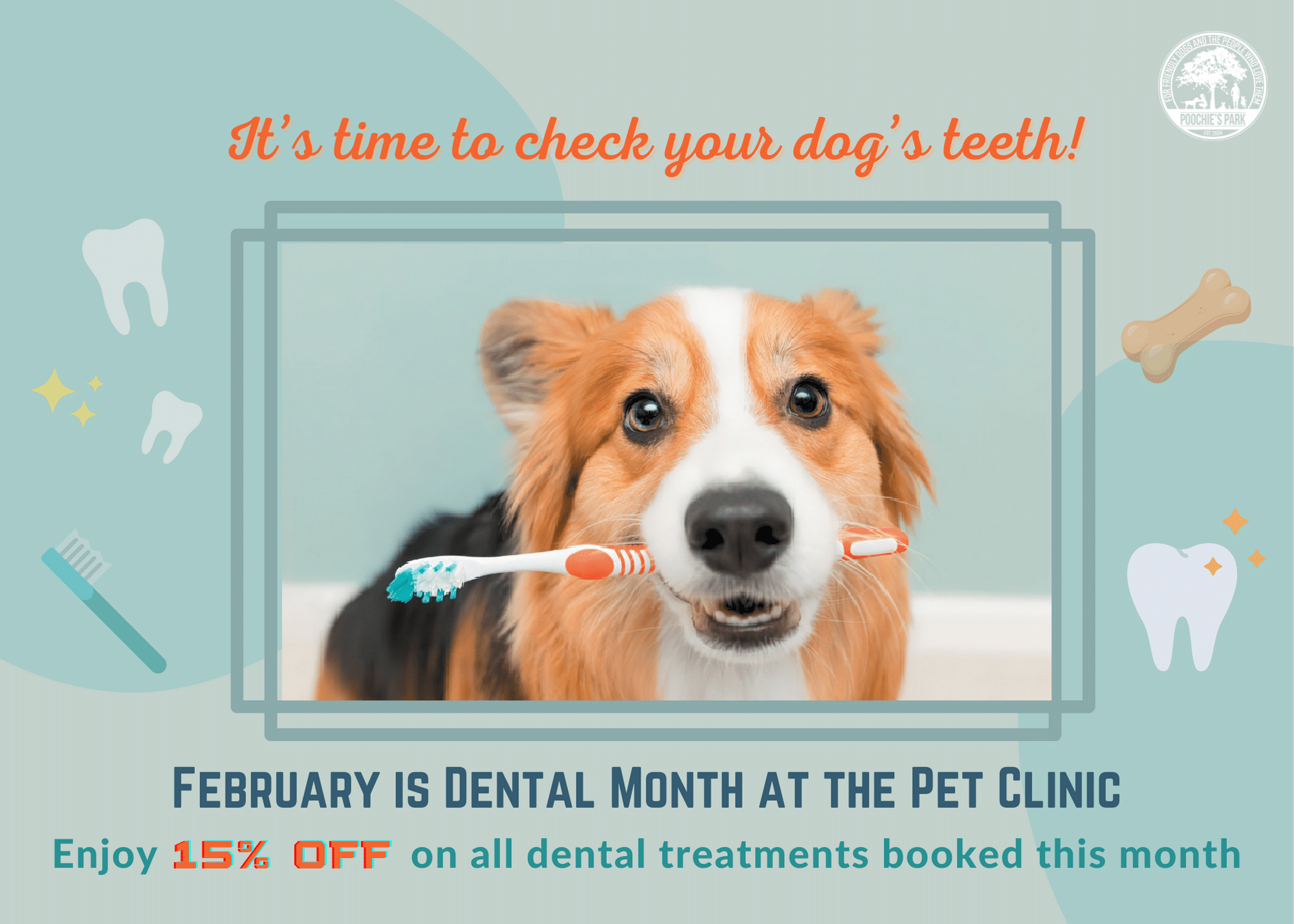As a loving pet parent, you do everything possible to keep your dog happy and healthy, but what about his dental care? Over 80% of dogs suffer from canine periodontal disease by their 3rd. birthday. Keeping your dog’s teeth healthy can prevent a lot of problems later.
Healthy dog teeth should be clean and free of plaque or tartar, intact, not jagged or broken. You should talk to your vet if you notice lumps, spots, pale gums, or bright-red tissue.
Regular dog dental care is extremely important for the same reasons it’s important for humans. Common problems associated with poor dental health can include bad breath, teeth getting lost or falling out, mouth pain, organ damage. If left untreated, the bacteria from your dog’s mouth can enter the bloodstream. From there, it can spread to the heart, kidneys, and liver, causing numerous secondary health problems.
Periodontal disease typically affects our dogs’ gums, teeth, or other parts of the mouth and jaw. It generally starts with a build-up of plaque on the tooth enamel that hardens into tartar. Tartar below the gumline creates inflammation, causes infection, and may ultimately damage the structures supporting your dog’s teeth. All of these symptoms can be very painful and quite expensive to treat. Fortunately, it has become easier than ever to practice good dog dental care!
As with many things, prevention is always the best course of action. Until recently, the only way to clean our dog’s teeth was to brush them with special dog toothpaste. While this method is effective (if done every week), it’s not very popular with our dogs but here are a few dental health tips and tricks that your dog might like better: Dental rinses and water additives; Dental wipes; Brush-free oral gel; Dental treats and chews; and Prescription diets.
If you notice that your dog’s teeth look discolored, or if his breath just isn’t getting better, your vet can help. Your vet can determine if your dog needs his teeth professionally cleaned by doing a quick exam. One major difference between your dog’s dental cleaning and your own is that your dog will require general anesthesia. While he’s asleep, your vet will take x-rays and carefully examine the teeth, gums, and other parts of the mouth. They’ll use special tools to scrape off all tartar and plaque. If your dog needs any complicated dental work, like extractions or root canals, you’ll probably be referred to a veterinary dental specialist. Most veterinarians recommend annual dental exams and cleanings. The good news is pet parents who practice good dog dental care at home can often avoid this extra expense, along with the other health problems associated with severe periodontal disease. Your pet will thank you!

